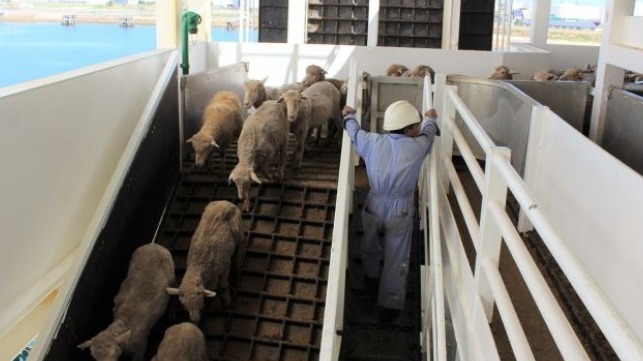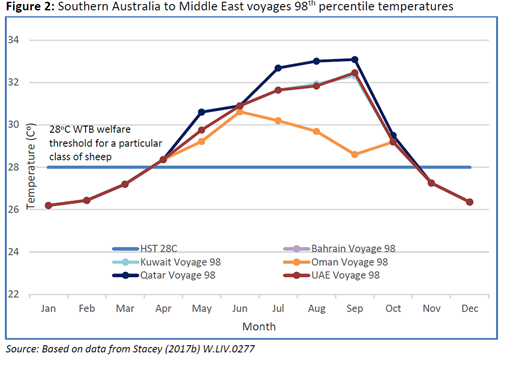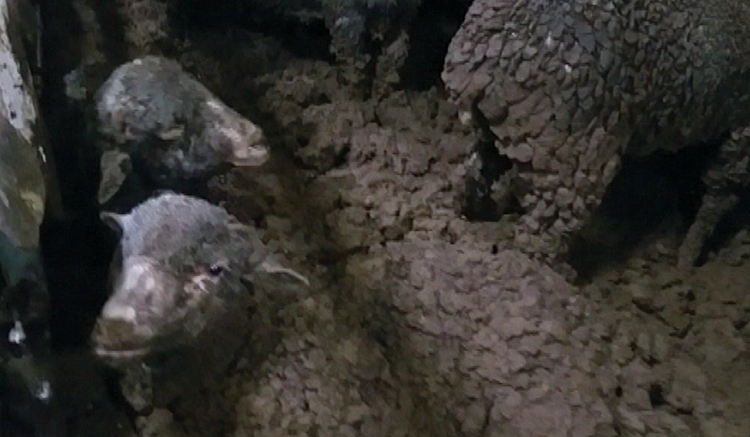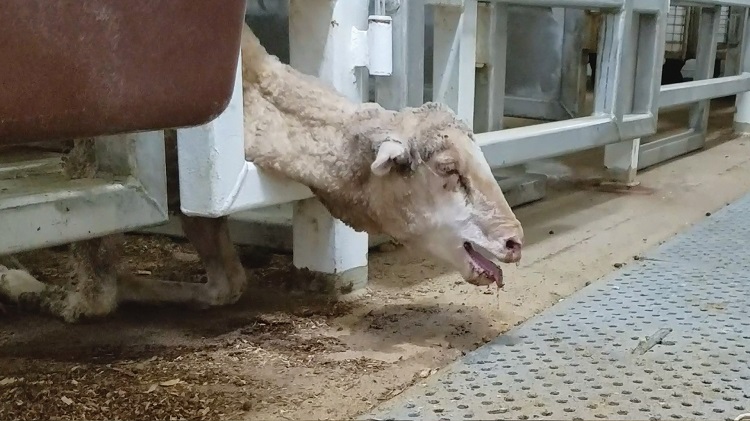[Updated] RSPCA: Australian Government Ignores Own Scientific Panel

Australia's Department of Agriculture will ask no more of live sheep exporters for the upcoming northern hemisphere summer and will allow Australian sheep to continue suffering heat stress, says RSPCA Australia.
The condemnation comes after regulations proposed for sheep exports during the May to October 2019 period were released by the Department last week. The proposal ignores the advice of the Australian Veterinary Association and contradicts a key recommendation of the McCarthy Review to move the regulatory framework from one based on mortality to one based on animal welfare.
The conditions mirror the voluntary commitment made by the Australian Livestock Exporters' Council in December last year to temporarily halt exports during June to August. The move has raised concerns that in order to meet demand during the Muslim festival of sacrifice in August, sheep will be shipped from Australia in May and held in feedlots over the Middle East summer.
RSPCA Australia Senior Policy Officer Dr. Jed Goodfellow criticized the Department’s proposal saying: “This is a poor response from a regulator that is evidently still under the thumb of the live export industry. Minister David Littleproud has repeatedly told the Australian public he will be acting on the scientific evidence to stop animal suffering, but it is clear his Department is not getting the memo.
“The evidence from their own Heat Stress Technical Panel shows conclusively that conditions on board live export vessels to the Middle East during May-October will routinely exceed the heat stress thresholds of Australian Merino sheep. Both humidity levels and death rates rise in September. If the Department says it has the evidence to stop exports from June to August, it certainly has the evidence to do so for September as well.
“It appears the only difference is the Department has the industry’s blessing to stop June to August; it doesn’t for May, September and October,” said Goodfellow.
Former live export veterinarian, Dr. Lynn Simpson, says: “ The government has again acted with negligence towards the animals involved in live exports. Negligence they can now prove has been in the face of scientific data and evidence that has been ignored. This government seems intent on chasing a handful of votes over a majority opinion and leaving the most vulnerable of the animals, still vulnerable. This is an unacceptable outcome across the board.”

Graph from the Draft Report of the Independent Heat Stress Risk Assessment Technical Review Panel showing the Heat Stress Threshold of the average “shipper sheep” (56kg Merino Wether) is exceeded from May to October.
RSPCA Australia also says the final report into the review of Australian Standards for the Export of Livestock (ASEL) released this week falls short on key animal welfare issues. While the RSPCA acknowledges some improvements in areas such as additional onboard reporting requirements and a lower rate for notifiable mortality events, the proposed standards fail to reflect the scientific evidence on stocking density and its relationship to good animal welfare.
Stocking density reductions of between 20 and 28 percent for sheep, depending upon the time of year, are proposed, but there is next to no change for cattle densities from the current ASEL standards.
The ASEL review was undertaken to ensure the standards for live exports are fit-for-purpose and reflect the latest science. It was undertaken by an independent Technical Advisory Committee, chaired by Steve McCutcheon, and experts in animal health and welfare, regulatory design and the livestock industry.
The committee considered scientific literature, advice from a Stakeholder Reference Group made up of industry representative bodies, submissions provided through three rounds of public consultation, reports from independent observers on recent voyages and other relevant information. It also considered outcomes from the McCarthy review.
The Australian Livestock Exporters’ Council (ALEC) has welcomed the review saying it provides some certainty for livestock exporters on how the reforms will impact the industry in practical terms when the standards are implemented in the coming months.
ALEC CEO Mark Harvey-Sutton said the new standards would cement Australia’s standing as the world’s leading livestock exporter and its unmatched commitment to ongoing improvement in animal welfare. “Overall, the ASEL changes are positive and, in many respects, reflect ALEC’s feedback arising from the draft recommendations,” Harvey-Sutton said. “Exporters are showing a willingness to drive positive change to secure a sustainable future for the livestock export industry and to ensure producers who rely on the trade have certainty and confidence for the future.”
However, Vets Against Live Export has issued a statement saying: "It was thought that the revised ASEL would be based on lifting animal welfare standards with an aim to reduce the undeniable animal suffering that has occurred onboard ships since the inception of this trade. However, it is quite clear from the first page of the revised standards that this new version of ASEL was heavily driven by industry economics. The Summary states that 'The recommendations were formed based on welfare considerations. But, as required by the committee’s terms of reference, the practicalities of livestock management and industry sustainability were also considered.' It would appear that economic viability outweighed animal welfare considerations in the new ASEL. Good animal welfare onboard live export vessels has never been economically feasible."
RSPCA's Goodfellow says the review falls short on the big issues that will make a real difference to animal welfare, like stocking densities that actually allow the animals to lie down at the same time over three to four week voyages to the Middle East, rather than expecting them to “time-share” the floor space.
“The densities proposed will still force animals to lie on top of one another, and in most cases without any form of bedding other than their own feces.
“We are particularly disappointed to see that the final report has backtracked on stocking density reductions proposed for cattle. The cattle industry should be using this as an opportunity to gets its house in order, not pushing back against these very modest improvements. If the current debacle with the live sheep trade doesn’t serve as a wake-up call for them, nothing will.”
Goodfellow says that animal welfare and live exports are fundamentally incompatible and should be replaced with an expanded trade in meat exports.
Animals Australia notes the two images below were taken from a May 2017 voyage from Australia to the Middle East.


